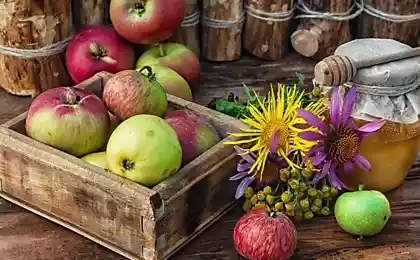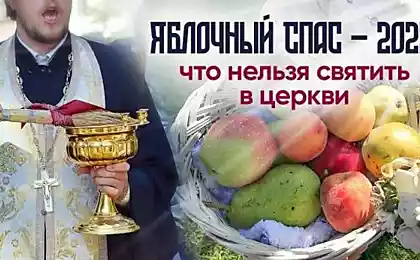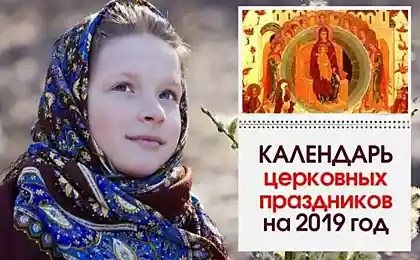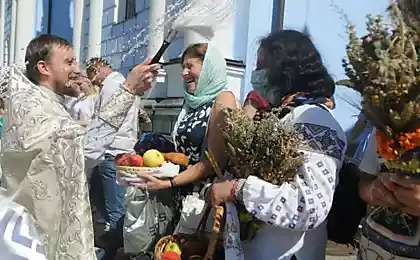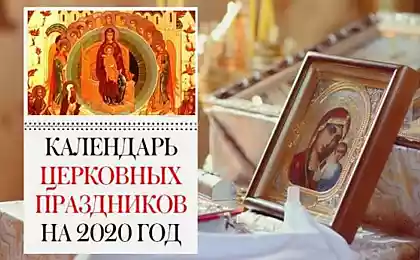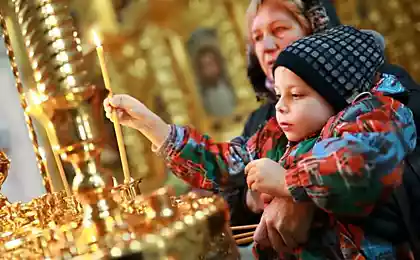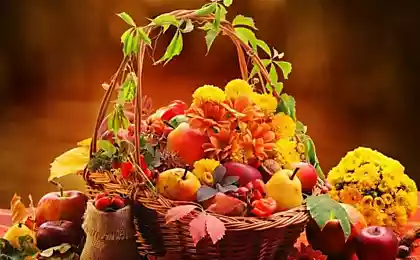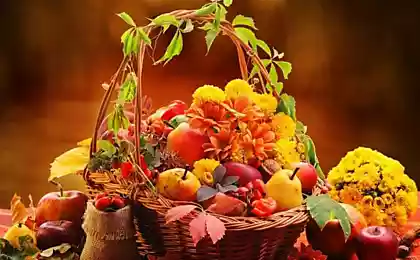272
What to do with the flowers consecrated on the Savior
In August there are three festivals named in honor of our Savior, Jesus Christ. August 14 (Honey Savior) - the feast of the Life-Creating Cross of the Lord and the Day of Remembrance of the Martyrs of the Maccabees, August 19 (Apple Savior) - the great The Transfiguration of GodAugust 29 (Orekhov Savior) – transfer of the image of the Lord not made with hands to Constantinople.

On the first day of the Assumption Lent, Orthodox Christians celebrate the Honey Savior. Parishioners go to church to consecrate water, honey and flowers, while hostesses bake traditional poppy pies. On the Apple Savior, the same parishioners bring fruit to the church, on the Nut - bread ears I and nuts. Since ancient times, all the holidays are shrouded in a huge number of superstitions and folk customs that cause confusion in the lives of believers.
Editorial "Site" I decided to find out where these “product” names came from. orthodox. Which traditions have spiritual meaning and which are misleading Christians?

History, traditions and signs on the Savior
On August 14th, strict rules begin. The Assumption Postwhich lasts until The Feast of the Dormition of the Mother of God (August 28). It is dedicated to the memory of the Virgin Mary, who from early childhood was in fasting and prayer. Abstaining from food and temptation, every believing Christian, imitating the Most Holy Mother of God, must purify his soul. Therefore, it is much more important not to sanctify bouquets and food, but to fast and pray, take communion and confess on August 19, in order to approach God, and therefore return to the Father’s house.
The Holy Fathers say that consecrate For the holidays, our spiritual heritage. In Orthodox life there is a place and a basket of apples, and a jar of honey. They'll be happy. ChristianThey understand the true meaning of holidays.
The Three Saviors are three feasts in honor of our Savior. They remind us once again that summer is coming to an end. It is time to prepare not only for the harvest, but also to reconsider all your actions, sincerely repent and change. Rejoice in what God has given you. I wish you peace, love, and keep you, dear friend, Lord.

On the first day of the Assumption Lent, Orthodox Christians celebrate the Honey Savior. Parishioners go to church to consecrate water, honey and flowers, while hostesses bake traditional poppy pies. On the Apple Savior, the same parishioners bring fruit to the church, on the Nut - bread ears I and nuts. Since ancient times, all the holidays are shrouded in a huge number of superstitions and folk customs that cause confusion in the lives of believers.
Editorial "Site" I decided to find out where these “product” names came from. orthodox. Which traditions have spiritual meaning and which are misleading Christians?

History, traditions and signs on the Savior
- Savior Honey, Apple and Nut – why did such names arise?
Honey Spas. It got its name due to the approaching date of harvesting new honey. Our ancestors began and ended with prayer. And as a sign of gratitude, they brought everything that God sent to the temple. On the 14th of August, sanctification (in memory of the end of the epidemic in the ninth century and the miracle of healing from diseases), people sanctified the gifts brought. This pious tradition was strengthened, and after the service, parishioners brought home not only holy water, but also food. This is a good custom, but it is not related to the true meaning of the holiday.
Also on August 14, the church honors the memory of the Old Testament martyrs Eleazar, his disciples. Maccabees and their mother Solomonia. Tradition to bring to the temple poppiesMost likely, it is associated with the consonance of the names and names of the martyrs.
Apple Savior It got its name in those distant times, when our ancestors adopted from the Greeks the tradition of asking the Lord for blessings for a new harvest. The Greeks consecrated grapes in churches, and in Russia it was replaced by apples. This tradition is very good, but it should be remembered that on August 19, it is not the fruits themselves that are consecrated, but the person.
Therefore, in addition to the turmoil with fruit, a believing Christian should confessTo be transformed before the Lord through these rites. On the second Savior God forgives all sins. Not all of them, but only those who have repented.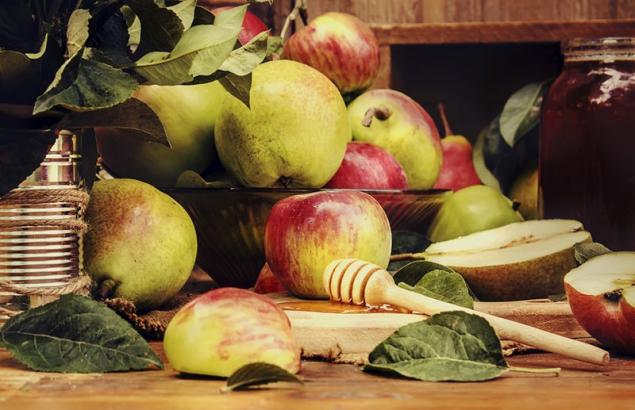
A story called The Nut Savior. This is similar to the previous two. And it is clear that you should not think about nuts on this day. No food can save the human soul. Of course, it is possible to consecrate spikes and nuts. But one should read the Holy Scriptures and look at the meaning of this custom, paying less attention to secondary things. - What to do with consecrated food
Food consecrated in the church should not be thrown away. Therefore, do not carry the entire crop to the temple. And even if you take too much, give it to those in need. Food can be eaten immediately or later. Alas, there is no mysterious power in honey, poppy and apples. Giving magical meaning to food is superstition. A true Christian believer knows this.
Do not shower poppy dwellings, babies and newlyweds, and especially carry food to the cemetery. It is better to pray for the living and the dead in church. - What to do with consecrated salvage bouquets
Very often believers together with food bring to the temple for consecration. flower-bucket - Makeshifters. But what to do with them after the service? The Orthodox Church says that flowers can decorate a house, but cannot be a talisman and will not protect a person from adversity. Only faith and sincere prayer can bring comfort, soothe and protect from bad thoughts. If you want to praise God with beautiful flowers, please! Act according to your heart. Consecrated bouquet You can leave it at church or bring it home. The place where the bouquet will stand does not matter. It can be a dining table or a corner with icons. Store flowers all year in the open air does not make sense, during this time it will collect only dust.
The best option is to collect holiday independently using herb. After the service, dry them, put them in a jar and brew them like tea. In this case, the bouquet will be more useful than the senseless hanging of flowers above the door and supposed protection from evil forces.
If the flowers were in a vase and spoiled, you should not leave a bouquet and especially cook a healing broth from it. Faded flowers are best burned, not just thrown in the trash. In any case, if you do not know what to do, go to church and ask for advice from the priest, not from the “knowing” grandmothers near the church fence.
- What about the young apples?
Everyone knows that apples have a lot of vitamins and nutrients. But nothing more. To return youth is not under the power of modern medicine, and here ordinary apples! You should not believe in such signs. And those who want to read the Savior on apples and learn fate, commit a great sin. The Church strictly forbids magic and any form of divination.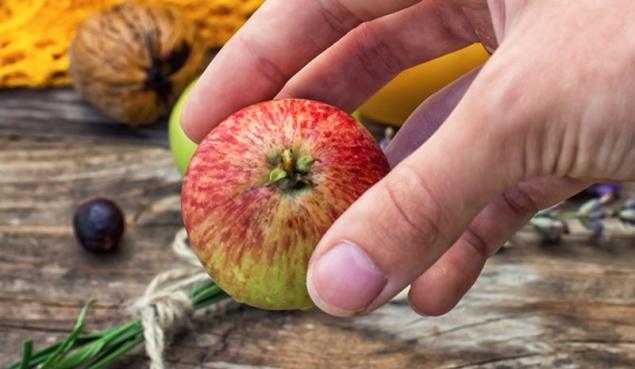
On August 14th, strict rules begin. The Assumption Postwhich lasts until The Feast of the Dormition of the Mother of God (August 28). It is dedicated to the memory of the Virgin Mary, who from early childhood was in fasting and prayer. Abstaining from food and temptation, every believing Christian, imitating the Most Holy Mother of God, must purify his soul. Therefore, it is much more important not to sanctify bouquets and food, but to fast and pray, take communion and confess on August 19, in order to approach God, and therefore return to the Father’s house.
The Holy Fathers say that consecrate For the holidays, our spiritual heritage. In Orthodox life there is a place and a basket of apples, and a jar of honey. They'll be happy. ChristianThey understand the true meaning of holidays.
The Three Saviors are three feasts in honor of our Savior. They remind us once again that summer is coming to an end. It is time to prepare not only for the harvest, but also to reconsider all your actions, sincerely repent and change. Rejoice in what God has given you. I wish you peace, love, and keep you, dear friend, Lord.
How to prepare Olivier according to the recipe of Tatiana Tolstoy
How to learn to wash a stretch ceiling






